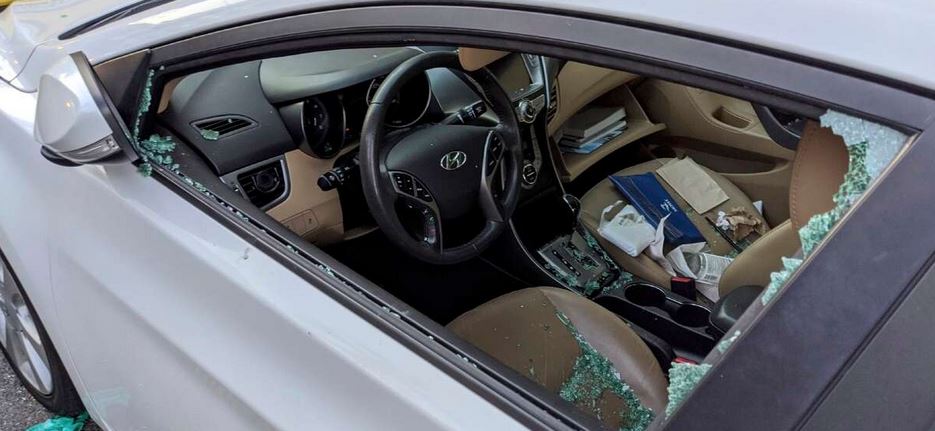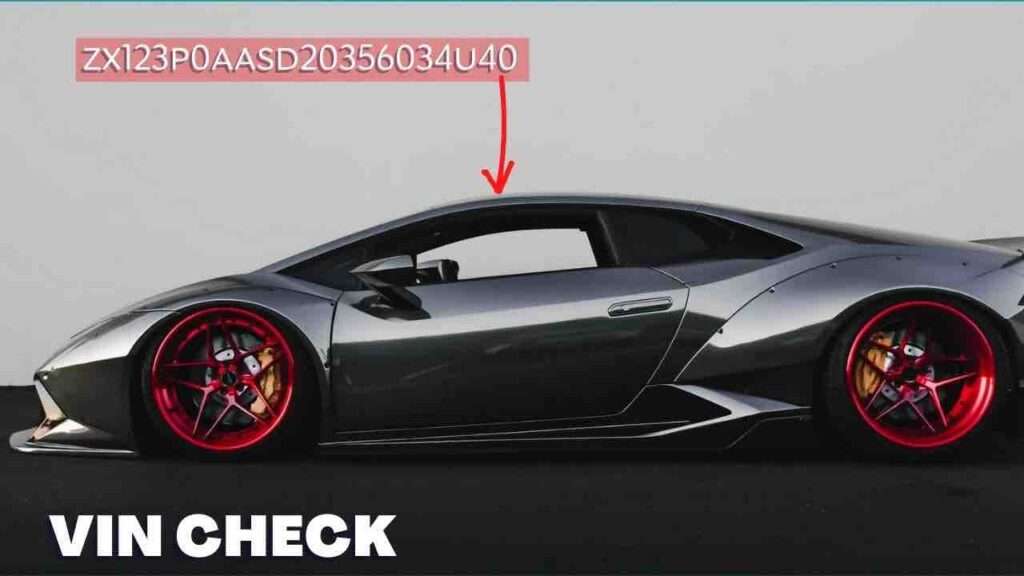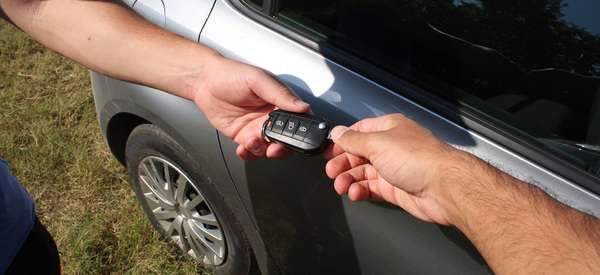20 Car Scams That Could Cost You Everything (Drivers Beware!) Nearly one in four drivers will become a victim of a car scam or theft in their lifetime. Criminals are adapting fast, using old tricks with new twists and tech-driven tactics that are harder than ever to spot if you are not up to date. In this article, we’re uncovering the most dangerous car scams happening right now. Some are sneaky distractions, others involve cutting-edge technology, and a few can leave you not only broke, but facing criminal charges for something you didn’t even do. Stick around until the end because one of these scams has gotten so advanced that victims didn’t just lose their cars, they almost lost their freedom. Let’s dive in.
20 Car Scams That Could Cost You Everything (Drivers Beware!) 2025
Number 20. The Fake Parking Attendant Scam,
Picture this: you roll up to a crowded downtown event, maybe a concert or a football game. Parking’s insane, but you finally spot a guy in a reflective vest waving drivers in with a flashlight. He takes your $20 cash, hands you a little ticket stub, and points you to a spot. Feels legit, right?
Here’s the scam, he doesn’t work there. He’s not staff. He’s just some scammer with a vest and a stack of fake tickets from Office Depot. You come back hours later, and either your car is booted, towed, or worse, broken into because you parked somewhere you weren’t supposed to. Best case? You just lost your cash. Worst case? You’re out hundreds in towing fees, tickets, and repairs.
How to stay safe: only pay inside official lots, not to random guys with stubs. If someone insists on cash, walk away. Real parking attendants don’t just “appear” with no signage or security.
Number 19. The Rental Car Return Scam
You’ve just wrapped up a long trip. You’re tired, juggling bags, kids, and receipts. At the rental lot, a friendly person in a polo shirt approaches: “Here, let me take the keys, I’ll handle the return for you.” Relief, right? Wrong.
This is the rental car return scam. The fake employee isn’t from the rental company at all. They drive off in your rental, never to be seen again. Guess who the rental company holds responsible? You. Victims have been billed thousands for “not returning” the car, plus late fees and insurance hassles.
Rule of thumb: never hand your keys to anyone outside the official counter. Rental companies have strict return procedures. If someone is waiting outside to “help,” assume scam first.
Number 18. The QR Code Pump Scam
We all love convenience. Scan, pay, go. But scammers know it too. At gas pumps and parking meters, they stick fake QR code stickers right over the real ones. You scan it thinking you’re paying for fuel, but instead, you’re redirected to a phishing site that steals your card info.
In Houston alone, police documented over a dozen of these in a single month last year. The sites even mimic real bank or payment portals, so you don’t realize until your account is drained.
Pro tip: only use the card reader built into the pump or app you downloaded yourself. If a QR code looks suspicious, off-center, or bubbly like a sticker, don’t scan it.
Number 17. The Ghost Broker Insurance Scam
Insurance is expensive, so scammers prey on people looking for “cheap deals.” Ghost brokers advertise on Facebook, Craigslist, and even WhatsApp, offering cut-rate insurance policies. Victims hand over hundreds, sometimes thousands, and get a PDF “policy document” that looks legit.
The problem? It’s fake. You don’t realize until you’re in an accident, then the insurance company says you were never covered. Worse, in some cases, these scammers actually sell stolen identities as “policies,” which means you could get dragged into fraud investigations too.
How to avoid it: always buy insurance directly from the company or a licensed broker. If the deal seems unbelievably cheap, it probably is.
Number 16. The Title Washing Scam
This one’s been around forever, but tech has made it even easier. Scammers take cars that were totaled, flood-damaged, or salvaged and “wash” the title clean. They do this by moving the paperwork through states with weaker DMV systems or using forged documents. Suddenly, that wreck is listed as “clean title” and sells for thousands more.
Buyers only find out when the engine fails, the frame cracks, or the car refuses inspection. By then? Too late.
Protect yourself: always run a vehicle history report through Carfax or AutoCheck. And remember, if the price is way lower than market value, you’re probably looking at a washed title.
Number 15. The Odometer Rollback Scam
Digital dashboards were supposed to end this, right? Wrong. Today, scammers use cheap software and plug-in tools to reset mileage on digital odometers in minutes. A car with 180,000 miles suddenly reads 70,000. Buyers overpay by thousands, thinking they scored a low-mileage gem.
This is still rampant in the used car market, especially with imports and online sales.
Check yourself: look for wear on the pedals, steering wheel, and seats. If the interior screams “old” but the dash says “young,” something’s fishy. Always get a pre-purchase inspection.
Number 14. The Fake Tow Truck Scam
You break down on the side of the road, already stressed. Then a tow truck appears like a knight in shining armor. The driver offers to tow you “cheap” to a nearby shop. But here’s the twist: the shop is either fake, charges outrageous fees, or they steal your car outright.
Some victims have been hit with storage fees of hundreds per day because their car was towed to a shady lot. Others never saw their vehicle again.
Stay safe: only call your insurance or roadside assistance for a tow. If a random truck shows up without you calling them? Assume it’s a setup.
Number 13. The Fake Online Car Listing (VIN Cloning)
This scam exploded during the pandemic when more people were buying cars online. Scammers post a car for sale, looks great, price is low, but believable. They even provide a VIN number and “clean title” paperwork. But here’s the catch: the VIN belongs to a real car somewhere else.
When you show up, the seller insists on a deposit or wires only, and then they vanish. Victims have lost thousands chasing cars that never existed.
Tip: never buy a car without seeing it in person, checking the VIN against the actual car, and verifying ownership.
Number 12. The Fake Police Pull-Over
Yes, this still happens. Drivers in unmarked cars with flashing lights pull you over, claiming to be undercover police. Once you stop, they rob you, or worse.
This scam has been reported in multiple states, especially in rural highways at night. Victims are told to step out of the car, then their wallets, phones, or vehicles are taken.
Rule of survival: if you’re unsure, don’t stop immediately. Put your hazards on, call 911, and drive to a lit, populated area. Real police won’t fault you for staying safe.
Number 11. The Key Fob Relay Theft
Push-to-start cars made life easier, and thieves love them. With a simple relay device, one thief stands near your house, another near your car. The device captures your fob signal from inside your home and relays it to the car. The vehicle unlocks and starts like magic. No broken glass, no alarms.
Victims wake up to an empty driveway, wondering how a thief stole their car without ever touching the keys.
Defend yourself: store key fobs in a Faraday pouch or metal tin, especially overnight. It blocks the signal entirely.
Number 10. The Windshield Money Trap
It sounds harmless. You walk outside on a cold morning, start your car, and spot a crisp $100 bill tucked under your windshield wiper. Jackpot, right? Not even close.
Here’s how it really works: you leave the car running, hop out to grab the “free” bill, and in that tiny window, a thief slips behind the wheel. By the time you realize what’s happening, your car, your wallet, maybe even your house keys are gone.
And just to rub salt in the wound? Sometimes the money is counterfeit. If you try to spend it, now you’re facing criminal charges on top of everything else.
The lesson? No one leaves free money on your car. If you see it, drive away to a safe spot before checking.
Number 9. The Fake Antifreeze Leak
Imagine walking up to your car and someone points out a neon-green puddle under your vehicle. They whisper, “Bad news, looks like a coolant leak. you’re about to blow your engine.” Heart racing, you panic.
But guess what? They poured the fluid there themselves or loosened your radiator cap. Right on cue, they offer to fix it “cheap” for cash. Victims have forked over hundreds for nothing.
Your move? If your dashboard shows no warnings and you didn’t see a puddle when you parked, drive off. Don’t open your hood for strangers.
Number 8. The Flat Tire Setup
Here’s a classic. You walk back to your car, and a stranger points out, “Hey, your tire looks low.” They might even offer to help. What you don’t know? They deflated it themselves, or stuck in a slow leak earlier.
While you’re bent over inspecting the tire, their buddy quietly grabs your purse, wallet, or phone. Sometimes, they guide you to a shady “repair shop” that charges five times the normal rate.
Pro tip: carry a small portable air compressor. If someone tries this, you can pump up the tire and leave, scam dead on the spot.
Number 7. The Gas Pump Hustle
Gas stations are prime hunting grounds. First, you’ve got skimmers, tiny devices attached to card readers that steal your info instantly. Then there are “helpful strangers” offering to pump your gas. Sounds kind, but while you pay, they keep fueling up other cars on your dime.
Worse? Distraction theft. One person chats you up while their partner swipes valuables from your unlocked car.
Protect yourself: pay inside with a credit card, lock your doors, and decline any “help.”
Number 6. The Plastic Bottle Carjacking Trick
This one is as creepy as it gets. A thief places an empty plastic bottle behind your rear tire. As you drive, it crunches loudly, making you think something’s wrong. You pull over, step out, boom. They jump in, lock the doors, and your car is gone.
And sometimes? Your kids are still inside.
Stay safe: if you hear weird noises, drive to a well-lit, public place before checking. Never exit your car without locking it first.
Number 5. The Wave-On Intersection Scam
You’re at an intersection, waiting. Another driver gives a polite wave, “Go ahead, it’s clear.” Feels nice, right? Wrong. The second you move, they slam into you. Since they had the right of way, it’s your fault.
This staged accident scam costs victims thousands in repairs, higher insurance, and lawsuits. Some even bring fake “witnesses” to back them up.
The cure: never trust hand signals at intersections. If they have the right of way, let them take it. And for the love of your wallet, install a dash cam.
Number 4. The Impending Danger Trick
You’re driving, and a frantic motorist signals like crazy. pointing at your car, yelling that smoke or sparks are flying out. Panicked, you pull over. The second you step out, their partner swoops in and snatches your bag, phone, or worse.
Here’s the truth: if your car had a real issue, your dashboard would tell you. Modern vehicles are smarter than strangers on the highway.
Tip: nod politely, keep driving, and only stop somewhere safe and public. Don’t let fear be your weak spot.
Number 3. The Chatty Helper
Sometimes scams don’t involve violence, just distraction. You’re loading groceries, buckling in kids, or grabbing bags when a “friendly stranger” strikes up a conversation. While you’re distracted, their partner grabs your wallet or phone from the seat.
The twist? If they saw you use your PIN inside the store, they’ll drain your bank account in minutes.
Defense: keep chats short and polite. Get in, lock up, then talk if you really need to.
Number 2. The Catalytic Converter Theft Ring
Catalytic converters are basically rolling gold mines. Inside? Platinum, palladium, and rhodium are all worth more than gold. Thieves can saw one off in under two minutes.
But the scam has evolved. Some crooks pose as “mechanics” offering cheap exhaust repairs. In reality, they swap your pricey converter for a worthless fake. Victims only find out when their car roars like a dragster and fails emissions.
Best protection: park in lit areas, install shields, and etch your VIN into the converter. And never, ever hand your car over to a stranger in a parking lot.
Number 1. The AirTag Tracking Scam
This one is terrifying. Thieves now use tiny trackers like Apple AirTags to stalk your car. They slip one under the bumper, in a wheel well, or behind the plate. Hours later, they know where you live and exactly when your car will be unattended.
Some victims only found out because their phone warned them. Others weren’t so lucky; their cars vanished from driveways overnight.
What to do: check your vehicle regularly, and if your phone alerts you to an unknown tracker, don’t ignore it. Call the police immediately. This isn’t a prank. It’s a theft in progress.
I have one more Bonus for you. The Insurance Scam
The oldest trick in the book, and it’s only gotten nastier. Scammers stage fake accidents like brake-checks, then file inflated claims against you. Some even have shady repair shops and doctors on standby to pad the bill.
End result? Higher premiums, lawsuits, and even criminal charges if they twist the story enough.
Your shield: always use a dash cam, take photos, and never admit fault on the spot. Evidence is the scam-killer here.
Have you seen any of these scams before? Comment below which one shocked you the most, or if you’ve ever experienced one!










